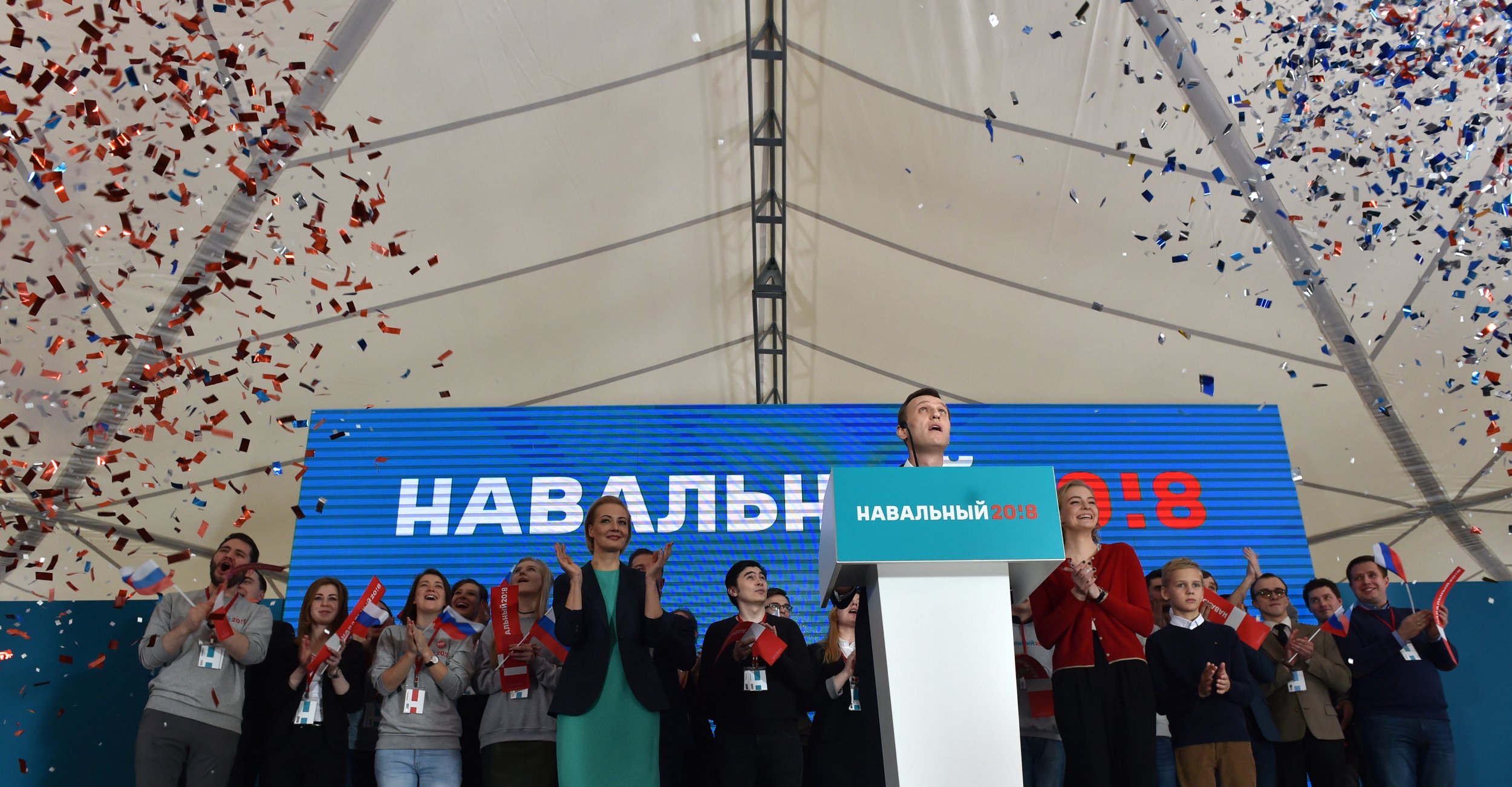
Update| While the U.S. is investigating the extent of Russia's interference in last year's election, Moscow has accused Washington of starting a meddling campaign in its own upcoming presidential vote.
The new twist in the election feud centers around the most prominent critic of Russian President Vladimir Putin, who wants to stand against the incumbent in March. Alexei Navalny has built an immense following, particularly among young Russians, thanks to his investigations into alleged corruption around some of Russia's most senior officials.
Related: Vladimir Putin salutes "true patriots" in brutal Soviet secret police
Over the last 12 months, Navalny launched two waves of nationwide street protests off the back of his YouTube reportage on allegedly corrupt assets held by Putin's one-time successor, and current prine minister, Dmitry Medvedev. An ongoing campaign to airbrush Navalny out of mainstream political discourse in Russia and an even more controversial fraud conviction that prevents him from standing for public office have repeatedly earned Moscow criticism from rights activists and Western governments.
Russia's Central Electoral Commission officially refused Navalny's application to be registered on the ballot over the weekend. Both European Union bodies and the State Department have condemned the persecution of what the Russian government calls the "non-systemic opposition," of which Navalny is a member.
"[This] is a direct interference in our electoral process and internal affairs," Russian Foreign Ministry spokeswoman Maria Zakharova wrote on Facebook on Wednesday. She cited comments attributed to the U.S. State Department that condemned Russia's "harsh measures" against "independent voices," which state news agency Itar-Tass said it had obtained from a representative called Clay Noel.
A State Department official told Newsweek that the U.S. position on the state of freedom of expression in Russia was indeed one of concern but did not refer directly to the comments in Itar-Tass.
"We continue to be troubled by the Russian government's ongoing crackdown against independent voices, from journalists to civil society activists and opposition politicians," the official says. "These actions indicate the Russian government has failed to protect space in Russia for the exercise of human rights and fundamental freedoms."
"More broadly, we urge the government of Russia to hold genuine elections that are transparent, fair, and free and that guarantee the free expression of the will of the people, consistent with its international human rights obligations."
Zakharova took issue with criticisms of freedoms in Russia, referring to recent restrictions in the way controversial Kremlin-funded outlets RT and Sputnik face in operating on U.S. soil.
"The funniest thing is that these are the same people who just branded RT and Sputnik as foreign agents, who are harassing Russian media around the world and who are investing huge amounts of money into 'countering Russian propaganda,' which is how they label anyone who they disagree with," Zakharova wrote.
"And these people expressed outrage over alleged Russian 'interference' in their electoral process for an entire year?!"
Russia has repeatedly denied meddling in any foreign election but has previously argued that the U.S. is seeking to interfere in the upcoming Russian election. Russian officials have repeatedly drawn equivalency between its alleged meddling and any act of criticism in Washington against Russia's domestic crackdown on foreign media, N.G.O.s and opposition figures.
Polls show that Putin is still the overwhelming favorite to win the next election, with no other candidate having received a significant fraction of the positive press that the president has. Putin's own shorthand in referring to Navalny in myriad ways to avoid mentioning him by name has become a recurring source of jokes among Kremlin-watchers.
Meanwhile Kseniya Sobchak, the daughter of Putin's late mentor, will take on the mantle of the liberal candidate in the election, after authorities agreed to permit her campaign. She has dismissed rumors that she is running on Putin's orders in order to prop up the election and has invited Navalny to support her campaign.
This story has been updated with the latest comments from the U.S. Department of State.
About the writer
I am a Staff Writer for Newsweek's international desk. I report on current events in Russia, the former Soviet Union ... Read more





